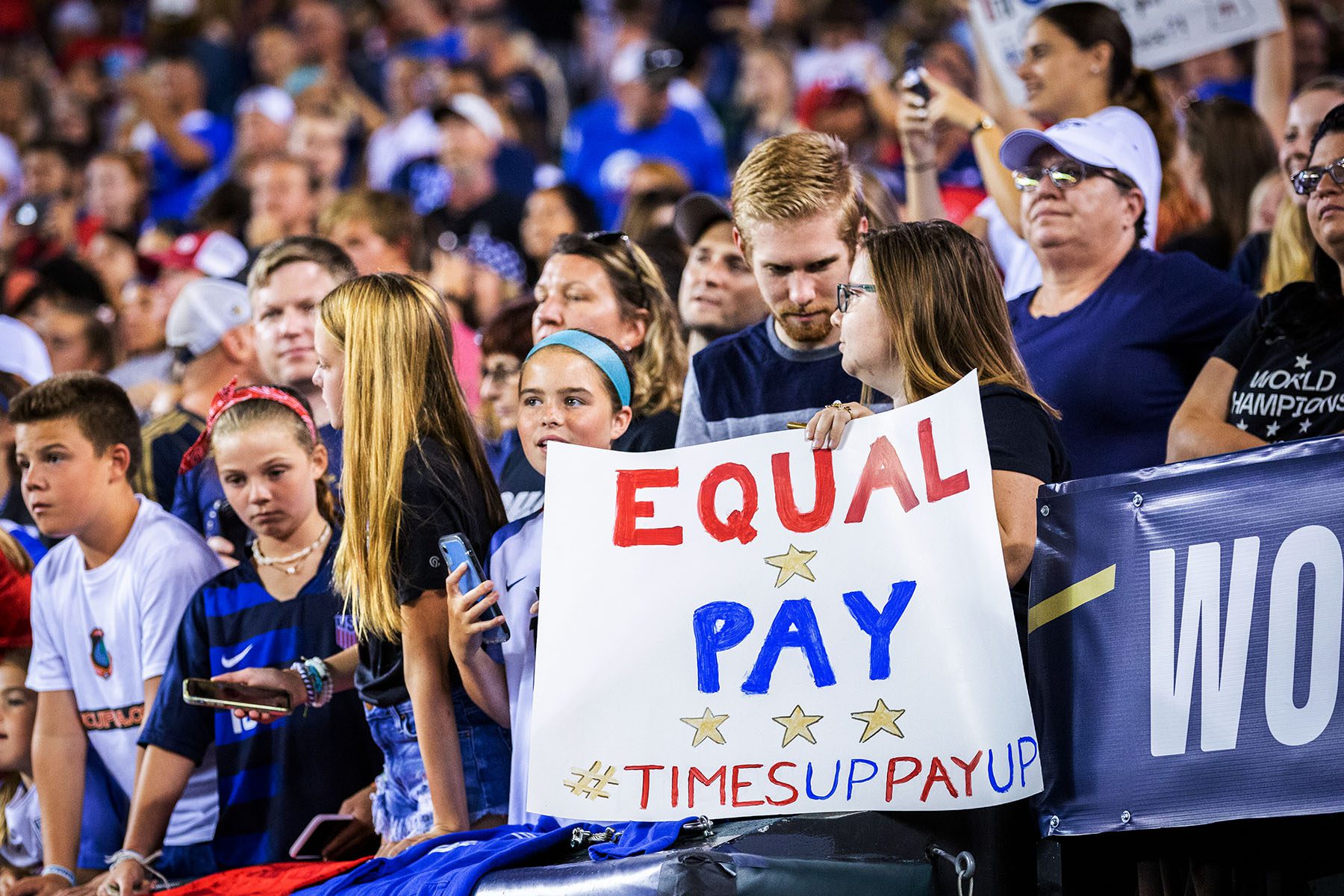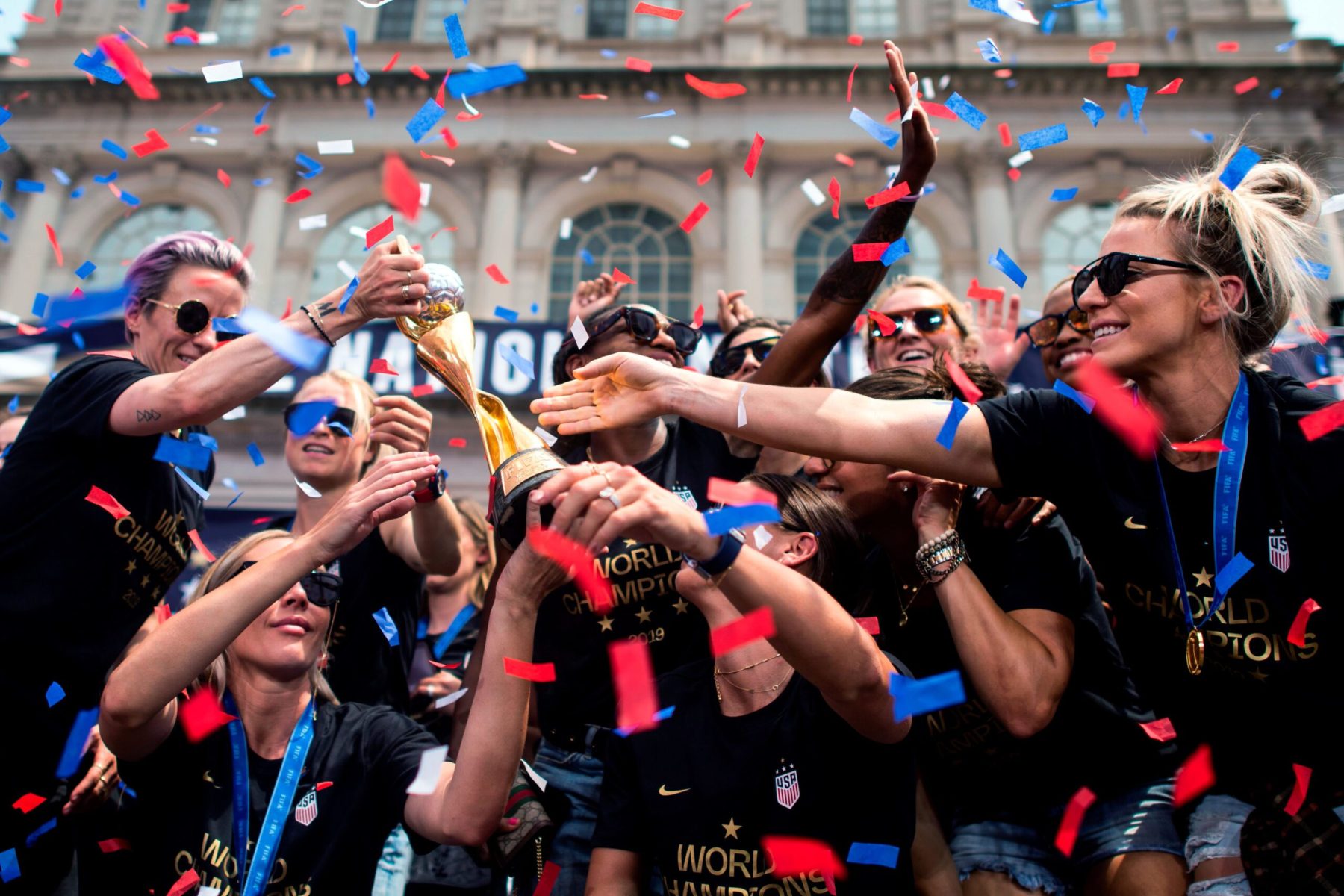In a historic, side-by-side deal, the unions for the U.S. men’s and women’s national soccer teams reached a collective bargaining agreement with the sport’s U.S. governing body, guaranteeing identical economic terms for both teams. The deals include equal compensations for all competitions, including the World Cup, and equal commercial revenue sharing for both teams.
The news of equal prize money for World Cup wins is a capstone to the years-long battle that the U.S. Women’s National Team (USWNT) has been engaged in with the U.S. Soccer Federation (USSF) over equal pay. Part of that was resolved in February, when the women’s team settled their equal-pay lawsuit against the USSF. The USSF agreed to pay a lump sum of $22 million to USWNT players, plus an additional $2 million to a fund established by USSF to support players in their post-professional-soccer careers and charitable work, allowing each player to apply for up to $50,000 from this fund.
The agreement also provides a major new benefit for the U.S. Men’s National Team (USMNT), whose players union last year backed the women in their lawsuit: It guarantees child care for the U.S. men’s team, just as it has for the women’s team for over 25 years.
Through the new collective bargaining agreements, any prize money won by either team in any competition, including the World Cup, will go into a pool, then be equally distributed among the players on the men’s and women’s teams. The deal starts with the 2022 men’s World Cup and the 2023 women’s World Cup and also covers the 2026 men’s and the 2027 women’s roster. The new agreement is in effect through 2028. Competition prize money has played a key role in equal pay negotiations for the USWNT, as the women’s team won more World Cups but the men’s team received bigger payouts.
Jeffrey Kessler, the co-executive chairman of the law firm Winston & Strawn and the lead attorney representing the USWNT players in their equal pay suit against USSF, explained that this last component — equal prize money from World Cup wins — was the part of the ongoing struggle for pay equity in soccer that “people were skeptical about the most.” The prize money is not determined in the United States by USSF, but abroad through soccer’s international governing body, FIFA.
“And FIFA has a terrible track record on equality,” he said.
The new collective bargaining agreement ensures that regardless of how FIFA rewards teams, USSF will ensure that earnings are equally distributed.
Today’s deal, Kessler said, has “vindicated” the USWNT’s view “that the responsibility for ensuring equality in this country rests with USSF,” not FIFA.

Becky Sauerbrunn, a defender on the women’s team and the president of its players union, said in a statement that she hoped the deal would help women’s soccer continue to flourish.
“The gains we have been able to achieve are both because of the strong foundation laid by the generations of WNT players that came before the current team and through our union’s recent collaboration” with the men’s union and with federation officials, she said.
Kessler said that the new child care benefit for the men’s team speaks to the core argument of what the women’s team had long argued.
“Equality goes both ways,” Kessler said. “Equality does not mean that men are disadvantaged, it makes for equal opportunity for everyone.”
He added: “What the women were always seeking in court was if they perform the same as the men, they should be paid the same and have the same opportunities and benefits. And if the men perform the same, they should be given the same benefits as well. This has always been about the opportunity for everyone to be treated the same.”
It’s why Kessler said that after the flush of initial headlines about today’s historic win for gender equality in sports, “people will take away that equality can be more than a slogan — it can be a reality. I don’t underestimate the fact that there is so much inequality still out there and there is so much still to be done on this issue. But we can get there and make progress, one step at a time. Not just in sports, but in the business community more generally.”







